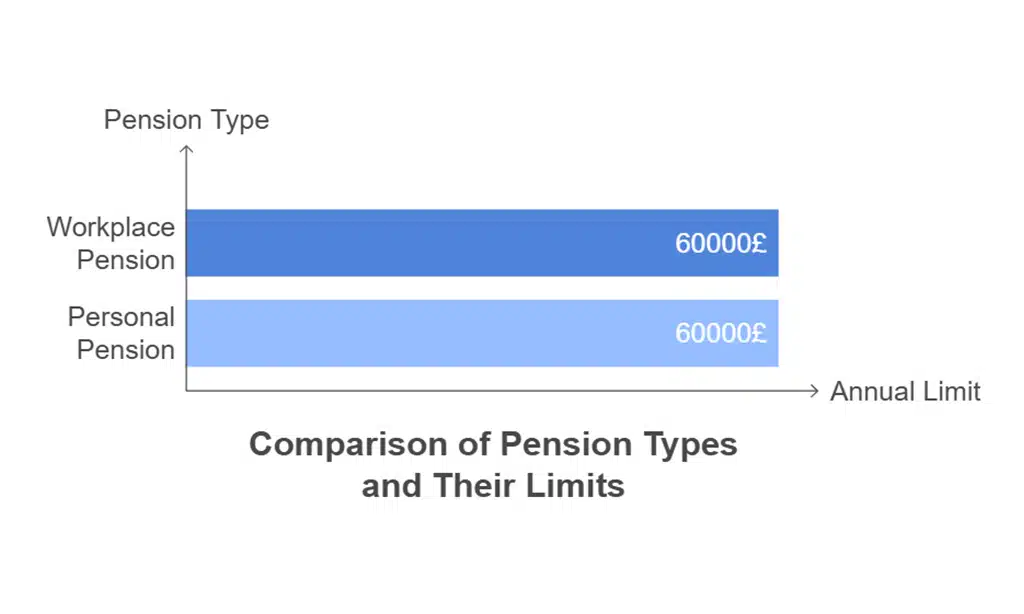In today’s financial landscape, making smart investment decisions is about more than just growing your wealth. It’s also about minimizing your tax burden. For UK taxpayers, understanding and leveraging tax-efficient investment opportunities is crucial for long-term financial success.
In this guide, we’ll explore 10 smart investments for tax benefits in the UK, providing you with actionable insights to optimize your financial strategy.
What Are Tax-Efficient Investments?
Definition and Importance
Tax-efficient investments are financial vehicles designed to maximize returns while minimizing the amount of tax you pay. These investments are structured to take advantage of government incentives, such as tax relief, exemptions, and deferrals. By utilizing these opportunities, investors can build wealth while keeping more of their money.
Overview of Tax Relief Programs in the UK
The UK government offers a variety of tax relief programs to encourage savings, entrepreneurship, and eco-friendly investments. Popular schemes include Individual Savings Accounts (ISAs), pension contributions, and the Enterprise Investment Scheme (EIS). Each program comes with unique benefits and eligibility criteria, making it essential to align your choices with your financial goals.
Top 10 Investments for Tax Benefits
1. Individual Savings Accounts (ISAs)
ISAs are one of the most accessible and popular tax-efficient investments in the UK. Designed to help individuals save or invest without paying tax on returns, ISAs cater to a wide range of savers and investors. With flexible options and a generous annual allowance, ISAs remain a cornerstone of tax-efficient planning.
Types of ISAs
- Cash ISAs: Ideal for risk-averse savers, offering tax-free interest on your deposits.
- Stocks & Shares ISAs: Allow you to invest in equities and bonds, with all gains and dividends tax-free.
- Lifetime ISAs (LISAs): Designed for first-time homebuyers and retirement savings, providing a government bonus of 25% on contributions.
Tax Benefits of ISAs
- No income tax on interest or dividends.
- No capital gains tax on investment growth.
| Type of ISA | Annual Limit (£) | Key Benefits |
| Cash ISA | 20,000 | Tax-free interest on savings |
| Stocks & Shares ISA | 20,000 | Tax-free gains on investments |
| Lifetime ISA (LISA) | 4,000 | 25% government bonus on savings |
Example: For the 2024/2025 tax year, the annual ISA allowance is £20,000 per person. This means you can invest up to this limit without paying any tax on your returns.
Actionable Tip: Regularly review your ISA investments to ensure they align with your financial goals and risk tolerance. Consider transferring funds between ISA types to optimize returns.
2. Pension Contributions
Pensions remain a cornerstone of retirement planning and offer some of the most significant tax advantages available in the UK. By contributing to a pension, you’re not only securing your future but also reducing your current tax liabilities.
Workplace Pensions vs. Personal Pensions
- Workplace Pensions: Often include employer contributions, boosting your retirement savings.
- Personal Pensions: Allow greater flexibility in managing contributions and investment choices.
Tax Relief on Contributions
- Basic rate taxpayers receive a 20% tax relief on contributions, while higher-rate taxpayers can claim an additional 20% or 25% through self-assessment.
- Contributions are tax-free up to an annual allowance of £60,000 (or 100% of your earnings, whichever is lower).
| Pension Type | Annual Limit (£) | Tax Relief |
| Workplace Pension | 60,000 | Employer contributions, 20%-45% tax relief |
| Personal Pension | 60,000 | Flexible contributions, 20%-45% tax relief |
Case Study: John, a higher-rate taxpayer, contributes £40,000 to his pension. He receives £8,000 in tax relief at the basic rate and can claim an additional £8,000 through self-assessment, effectively reducing his contribution cost.
Actionable Tip: Consider increasing contributions when your income rises to make the most of available tax relief.
3. Enterprise Investment Scheme (EIS)
The EIS is a government initiative to encourage investment in small, high-risk companies. It’s a popular choice for experienced investors looking to diversify their portfolios while gaining substantial tax relief.
Benefits of EIS
- 30% income tax relief on investments up to £1 million.
- Capital gains deferral if you reinvest proceeds into EIS-qualifying companies.
- No inheritance tax if held for at least two years.
Comparison Table: EIS vs. Other Tax-Efficient Schemes
| Feature | EIS | ISA | VCT |
| Income Tax Relief | 30% | None | 30% |
| Capital Gains Tax | Deferral | Exempt | Exempt |
| Investment Cap (£) | 1 million | 20,000 | 200,000 |
Case Study: A UK investor contributes £50,000 to an EIS. They save £15,000 in income tax (30%), and any capital gains from the investment are tax-deferred. This makes EIS an excellent choice for high-net-worth individuals.
Actionable Tip: Research EIS-qualifying companies with a strong growth potential to minimize risk while maximizing returns.
4. Venture Capital Trusts (VCTs)
VCTs offer a way to invest in small businesses while benefiting from generous tax incentives. Though riskier than traditional investments, VCTs can yield substantial returns for those willing to take on higher risk.
Key Advantages
- 30% income tax relief on investments up to £200,000 per tax year.
- Tax-free dividends and no capital gains tax on disposal of VCT shares.
| Feature | VCT | Key Benefits |
| Income Tax Relief | 30% | Significant reduction in tax liabilities |
| Dividends | Tax-Free | No additional tax on payouts |
Example: Emma invests £200,000 in a VCT and saves £60,000 in income tax while earning tax-free dividends annually.
Actionable Tip: Diversify your VCT investments across industries to mitigate risks associated with small businesses.
5. Property Investments
Investing in property offers unique tax advantages when approached strategically. With the right strategy, property investments can provide a steady income stream and long-term growth.
Tax Benefits
- Mortgage interest relief for buy-to-let properties.
- Capital gains tax allowances when selling investment properties.
- Deductible expenses, such as maintenance and property management fees.
| Benefit | Key Details |
| Mortgage Interest Relief | Limited to 20% of interest paid |
| Allowable Expenses | Maintenance, property management costs |
Example: Sarah rents out a property and deducts maintenance costs of £5,000, reducing her taxable income significantly.
Actionable Tip: Stay updated on UK property tax regulations to maximize deductions and avoid penalties.
6. Green Investments
Green investments align financial goals with sustainability by supporting eco-friendly initiatives. These investments often come with tax incentives, making them an attractive option for environmentally conscious investors.
Tax Incentives
- Reduced tax rates for income from renewable energy sources.
- EIS tax relief for investments in sustainable startups.
Example: Investing in solar energy companies can provide both financial returns and environmental impact.
Actionable Tip: Research government-backed green bonds for low-risk, tax-efficient investment options.
7. Charitable Contributions
Donating to charities is not only a noble act but also a way to reduce your taxable income.
Tax Relief Options
- Gift Aid adds 25% to your donation, and higher-rate taxpayers can claim the difference.
- Payroll giving allows tax-free donations directly from your salary.
| Method | Tax Benefit |
| Gift Aid | 25% uplift, plus higher-rate relief |
| Payroll Giving | Tax-free donations |
Actionable Tip: Keep records of your charitable donations to claim maximum tax relief efficiently.
8. Junior ISAs for Children
A Junior ISA is a tax-efficient way to save for your child’s future. These accounts provide a safe and effective method for long-term savings with tax-free growth.
Benefits
- Tax-free interest and investment growth.
- Annual contribution limit of £9,000 per child.
Example: Investing in a Junior ISA early can lead to significant compound growth by the time your child turns 18.
Actionable Tip: Automate monthly contributions to a Junior ISA to ensure consistent savings.
9. Salary Sacrifice Schemes
Salary sacrifice involves exchanging a portion of your salary for non-cash benefits, reducing your taxable income.
Popular Schemes
- Pension contributions.
- Childcare vouchers.
- Cycle-to-Work schemes.
| Scheme | Key Benefit |
| Pension Contributions | Tax-free additions to retirement savings |
| Cycle-to-Work | Savings on commuting costs |
Example: Mark sacrifices £5,000 of his salary for additional pension contributions, reducing his taxable income and boosting retirement savings.
Actionable Tip: Explore options with your employer to customize your salary sacrifice benefits.
10. Seed Enterprise Investment Scheme (SEIS)
SEIS provides tax relief for investments in early-stage startups. This scheme is particularly attractive to those looking to support innovative and high-growth potential businesses.
Key Benefits
- 50% income tax relief on investments up to £100,000.
- No capital gains tax on SEIS shares if held for three years.
Example: Investing in innovative tech startups through SEIS can offer high returns and substantial tax relief.
Actionable Tip: Vet SEIS-qualifying businesses thoroughly to minimize risk and ensure alignment with your financial goals.
Key Considerations Before Investing
Risk Tolerance
Not all investments are suitable for everyone. Assess your risk appetite before committing funds.
Long-Term vs. Short-Term Goals
Align your investments with your financial objectives, whether it’s retirement savings or short-term capital gains.
Seeking Professional Advice
Consult a financial advisor or tax specialist to tailor your investment strategy to your unique circumstances.
Interactive Features for Enhanced Engagement
Table: Comparison of UK Tax-Efficient Investment Options
| Investment Type | Tax Benefits | Eligibility | Risk Level |
| ISAs | Tax-free returns | UK residents | Low to Medium |
| EIS | Income tax relief | High-net-worth | High |
| VCTs | Tax-free dividends | Experienced | High |
Quick Tips to Maximize Tax Savings
- Use your full ISA allowance annually.
- Contribute to your pension up to the annual limit.
- Explore salary sacrifice options with your employer.
Final Thoughts
Smart investments for tax benefits in the UK offer a pathway to financial growth and reduced tax liabilities. By leveraging options like ISAs, pensions, and EIS, you can achieve your financial goals while optimizing your tax position.
Start planning today, consult a financial advisor, and make the most of these tax-efficient strategies to secure a prosperous future.







































